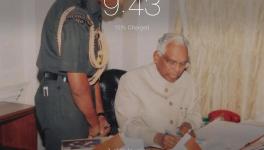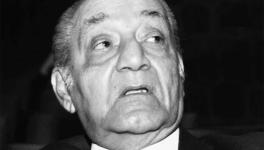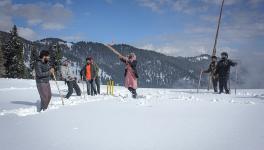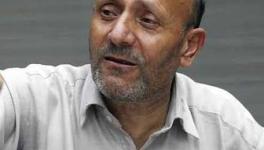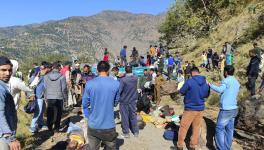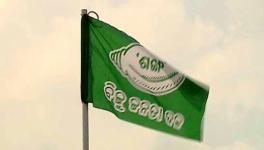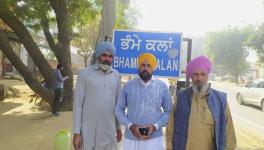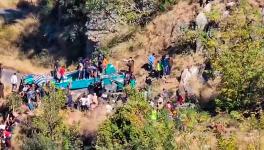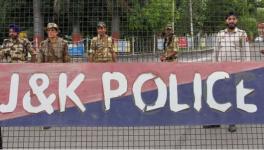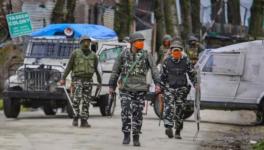J&K: Phase VII of Panchayat Polls Concludes, Low Turnout in Valley
On Tuesday, amid tight security, strike and boycott call given by the Joint Resistance Leadership (JRL) in Kashmir, voting for phase VII of panchayat polls ended in Jammu and Kashmir, with highest turnout recorded in Jammu division.
During this phase, polling took place at 2,714 polling stations – 576 in Kashmir division and 2,138 in Jammu division – across J&K.
To handle the law and order situation, as per Chief Electoral Officer of J&K, Shaleen Kabra, 892 polling stations were categorised as ‘hypersensitive’ during this phase, 428 of which fell in Kashmir division and 464 in Jammu division.
In this phase, 5,575 candidates contested for 341 sarpanch and 1,798 panch seats, while 85 sarpanch and 912 panch have been elected unopposed.
In the polling divisions, 4,75,865 voters were supposed to cast their vote for sarpanch constituencies, and 3,45,880 for panch constituencies.
Meanwhile, polling in Kashmir division took place in Kupwara, Bandipora, Baramulla, Ganderbal, Budgam, Pulwama, Shopian, Kulgam and Anantnag. In Jammu, polling took place in Ramban, Reasi, Samba, Rajouri, Jammu City and Poonch.
Overall turnout recorded in Jammu and Kashmir was 75.8 per cent.
In the Jammu division, 84.5 per cent voters exercised their franchise, and 86.5 per cent voters turned out in the Poonch district, making it the highest turnout in the division.
In Kashmir division, 30.3 per voters came out to vote, as Kupwara district recorded the highest turnout of 44.9 per cent.
Why Election Boycott Is Normal in Kashmir
Election boycott, historically has not been uncommon in Kashmir. During the days of the Plebiscite Front (a splinter faction of Sheikh Abdullah from 1955-1975), Sheikh, the then second prime minister of J&K, as the party founder and president of the National Conference, also boycotted the elections in Kashmir. In 1975, Sheikh returned to mainstream politics as the chief minister of J&K, after the 1974 Indira-Sheikh accord with the then Indian PM Indira Gandhi. This marked the end of the boycott. The accord essentially involved giving up the demand for a plebiscite in lieu of the people being given the right to self-rule by a democratically elected government (as envisaged under article 370 of the Constitution of India).
In 1982, after the death of Sheikh, his son Farooq Abdullah became NC’s president, and boycott politics returned to J&K. A large number of candidates, voters, campaigners and political activists were killed by the gunmen.
In addition to thriving on poll boycotts, the National Conference, from 1977, has also been involved in post-poll rigging controversies. In the assembly elections held in 1987, the National Conference's seat percentage (65.51) was grossly disproportionate to its (lower) percentage of polled votes (34.78).
During this period, one of the losing parties was the Muslim United Front (MUF). One of the defeated MUF candidates, Mohmmad Yousuf Shah aka Syed Salah-Ud-Din, is today head of United Jihad Council and Hizbul Mujahedeen.
Boycott of elections continued in Kashmir. On April 10, 2017, eight civilians were killed in firing by government forces during the clashes on bypolls for Lok Sabha seats. More then 200 people were injured in the incident.
The lowest-ever voter turnout of 7.1 per cent was recorded. The by-poll to the Lok Sabha constituency spread across three districts of Srinagar, Budgam and Ganderbal was marred by widespread violence.
Why People Are Boycotting
The violence and armed resistance in Kashmir can be as regarded as one of the top reasons for boycotting elections in Kashmir. The civilian killings and the denial of the human rights by the government forces act as an added trigger to the anger amongst people. People have lost hope in the governance of the state.
A person from Pulwama district (wishing anonymity), whose son was killed by the government forces, told Newsclick that his son was killed by a bullet by the forces when he had gone to attned his tuition classes, and was labeled a stone-pelter. “I don’t expect anything from the government, they are the ones who order, the forces are only following their orders. I prefer to waste my vote instead of choosing anyone who will continue the killings,” he said.
Political analysts of Kashmir informed Newsclick more than eight thousand people have been taken away by the forces over the years. These people never returned, and their families have been boycotting elections ever since.
Get the latest reports & analysis with people's perspective on Protests, movements & deep analytical videos, discussions of the current affairs in your Telegram app. Subscribe to NewsClick's Telegram channel & get Real-Time updates on stories, as they get published on our website.









